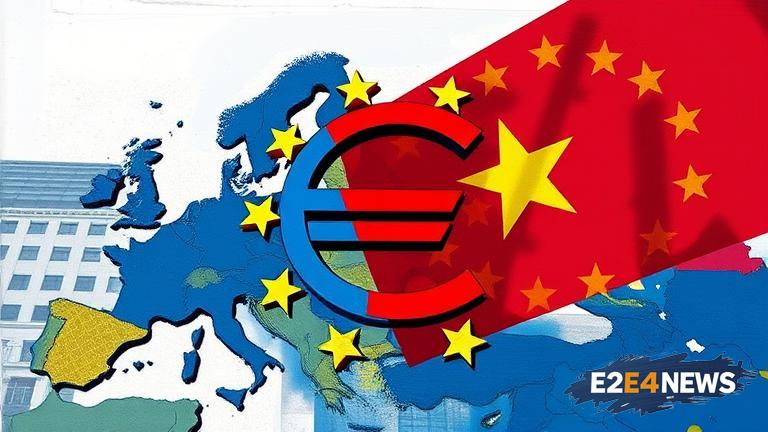The Euro area has experienced a notable improvement in its external position, with a significant increase in exports and a decrease in imports. This has led to a substantial rise in the region’s trade surplus. However, the International Monetary Fund (IMF) has warned that internal imbalances within the Euro area could pose a threat to economic stability. The IMF has cautioned that the region’s economic growth is not evenly distributed, with some countries experiencing much stronger growth than others. This has led to concerns about the sustainability of the region’s economic recovery. The IMF has also warned about the risks of a sharp decline in global trade, which could have a significant impact on the Euro area’s economy. Despite these concerns, the Euro area has made significant progress in reducing its external deficits, with many countries experiencing a significant improvement in their trade balances. The region’s exports have been driven by a strong performance in the manufacturing sector, particularly in countries such as Germany and Italy. However, the IMF has warned that the region’s economic growth is not just dependent on external factors, but also on internal reforms. The fund has called for countries to implement structural reforms to improve their competitiveness and reduce their dependence on external demand. The Euro area has also faced challenges in terms of its internal imbalances, with some countries experiencing much higher levels of debt than others. The IMF has warned that these imbalances could pose a significant risk to the region’s economic stability, particularly if there is a sharp decline in global trade. The fund has called for countries to take steps to reduce their debt levels and improve their fiscal sustainability. The Euro area has also faced challenges in terms of its banking sector, with many banks still struggling with high levels of non-performing loans. The IMF has warned that the region’s banking sector is still vulnerable to shocks, particularly if there is a sharp decline in global trade. Despite these challenges, the Euro area has made significant progress in recent years, with many countries experiencing a significant improvement in their economic performance. The region’s economic growth has been driven by a strong performance in the manufacturing sector, as well as a significant increase in investment. However, the IMF has warned that the region’s economic growth is not sustainable in the long term, unless countries implement structural reforms to improve their competitiveness and reduce their dependence on external demand. The fund has called for countries to take steps to improve their education systems, as well as to increase investment in research and development. The Euro area has also faced challenges in terms of its labor market, with many countries experiencing high levels of unemployment. The IMF has warned that the region’s labor market is still vulnerable to shocks, particularly if there is a sharp decline in global trade. Despite these challenges, the Euro area has made significant progress in recent years, with many countries experiencing a significant improvement in their labor market performance. The region’s labor market has been driven by a strong performance in the manufacturing sector, as well as a significant increase in investment. The IMF has warned that the region’s economic growth is not just dependent on external factors, but also on internal reforms. The fund has called for countries to implement structural reforms to improve their competitiveness and reduce their dependence on external demand.
